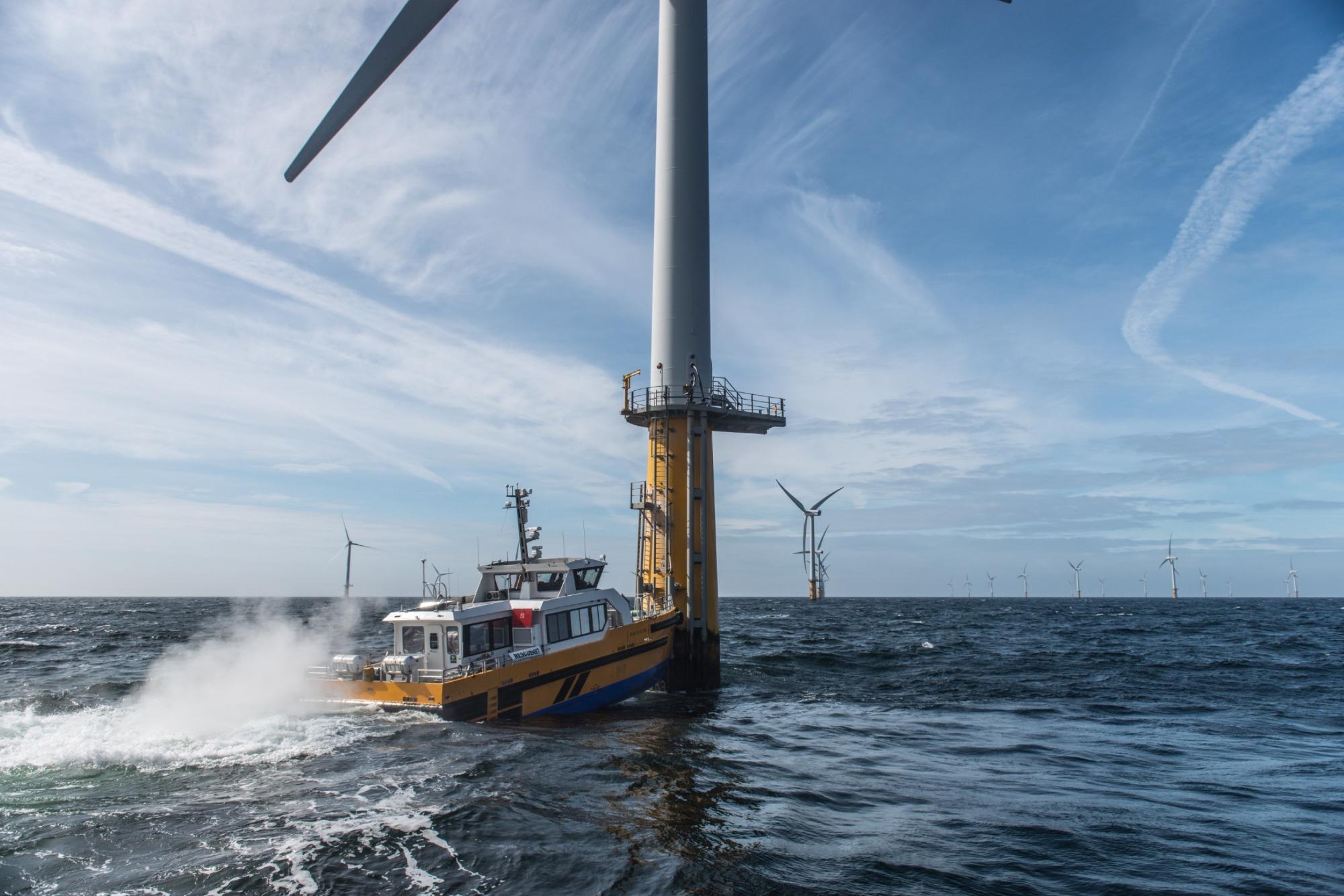Nov 27 2020
A consortium of offshore renewable energy and marine companies will lead a project to explore the viability of developing an offshore charging facility for vessels as part of the industry’s efforts to decarbonise its vessel operations.
 Windcat crew transfer vessel
Windcat crew transfer vessel
Funded by the first phase of the UK Government’s Sustainable Innovation Fund, the project - led by Turbulent Simulations, alongside Aluminium Marine Consultants, the Offshore Renewable Energy (ORE) Catapult, MJR Power & Automation, Tidal Transit and Bibby Marine Services - will look into the design of a permanently stationed Offshore Charging Vessel.
The technology would allow electrified vessels, such as Crew Transfer Vessels (CTVs) and Service Operating Vessels (SOVs), to dock and recharge whilst operating offshore, giving them greater range and bigger operating windows. The charging vessel would, in turn, draw power from wind farms at times of low demand, storing it in onboard batteries.
Having a charging capability offshore should bolster an owner/operator’s confidence to invest in electrified vessels, which will have greater flexibility to operate in the field for longer periods, supporting a reduction in operations and maintenance costs. Decarbonising the offshore fleet is vital if the UK is to meet its net-zero targets by 2050. The project partners will also explore the potential for the charging vessel to store modular battery units that could be swapped for the used battery on the operating vessel.
The project has already attracted significant interest, with confirmed backing from industry advisers, including Vattenfall Networks, Vattenfall Renewables and the Workboat Association (WA). The consortium is also hoping to advance to the second phase of the Sustainable Innovation Fund, potentially accessing £3m of grant funding to undertake a detailed design and demonstration of the charging vessel.
Trevor Linn, CEO of Turbulent Simulations, said: “We have more than six years of experience working on software coding and digital solutions for clients including the Ministry of Defence and Lockheed Martin. We’re excited to be working with leading offshore wind industry partners and bring our knowledge and experience of software and digital integration to bear in tackling the challenge of offshore charging. We see huge potential and strong market demand for this innovative technology as the offshore wind industry and the broader maritime sector seek solutions for charging the next generation of electric and hybrid service vessels.”
Stuart Barnes, Regional Partnership Manager at ORE Catapult, said: “ORE Catapult recognises the strong industry demand for clean maritime solutions to help the industry reduce its emissions during the operations and maintenance of offshore wind farms. Early indications suggest that electric and hybrid CTVs are gaining popularity among operators and an important enabler to unleash their full potential is the capability to charge offshore. Delivering this capability requires a number of technical, commercial and regulatory barriers to be addressed and ORE Catapult is pleased to be working with this group of highly skilled UK SMEs involved in bringing forward this innovation.”
Leo Hambro, Director at Tidal Transit said: “As a vessel operator actively pursuing net-zero maritime operations, we believe that offshore charging capability is an important enabler to the rapid deployment of electric and hybrid electric vessels in offshore wind. As such we take a great interest in this emerging technology and we’re very pleased to be providing direct support to the development of this important innovation.”
ORE Catapult is leading on a market awareness study for the project to gain insights from vessel designers, vessel operators and wind farm owner operators that will inform how industry standardisation for the connection between vessel and charging system can be achieved. It is calling on organisations to provide feedback by completing an online survey that can be accessed here: https://forms.office.com/Pages/ResponsePage.aspx?id=R4KE2RusbUeKLnx2ESlng6atzj1eDv5KiOqPsEp1f7lUQkJGN1FHRFBJSzFaVzE2M1hVQVFXODFaWS4u.
For more information about engaging with the project, companies can contact ORE Catapult directly at [email protected]